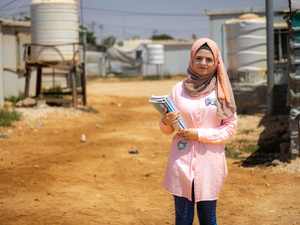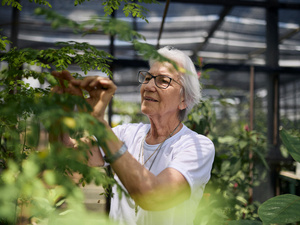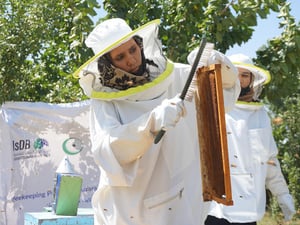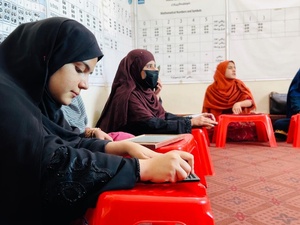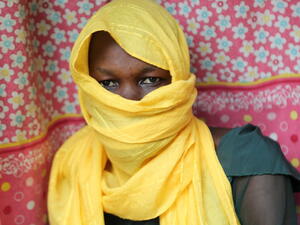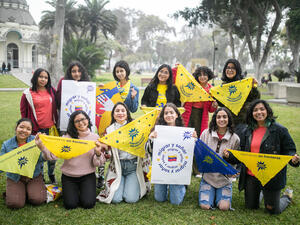A new start in Mexico: leaving domestic violence behind
A new start in Mexico: leaving domestic violence behind

A Mother and Child Reunion: Rebecca is reunited with her son.
MEXICO CITY, Mexico, September 23 (UNHCR) - Rebecca* looked a picture of happiness as she hugged her beloved son at Mexico's International Airport late last month after more than a year apart. The last time she saw 20-year-old Juan,* in June last year, she was in the depths of despair and living in fear of her life.
The 40-year-old brunette was a long-term victim of domestic violence, but, unlike most women abused in the home, she fled to another country because she felt there was no person or organization she could turn to in her native Nicaragua. Last year, she was granted refugee status in Mexico on the grounds that it would be dangerous to repatriate her.
Domestic violence is a big problem in Nicaragua, where some non-governmental organizations (NGO) estimate that up to 60 percent of women have been physically abused by a partner at least once.
Reporting the crime is no guarantee of protection; more than 70 percent of those accused of domestic violence are either acquitted or never charged, according to Nicaraguan human rights organizations. Many women in the country refer to domestic violence as "the cross one must carry."
Rebecca bore it for more than 20 years. Her misery began almost as soon as she married the man she thought that she wanted to spend the rest of her life with. She was just 17 at the time and unaware of the dark side of his character - the verbal and physical abuse didn't take long to surface.
Her husband used to beat her, yell at her, call her names, put her down in public and even sexually abuse her. He would not let her work, but he refused to give her an allowance. He would fly into a rage if she looked at any man, even her doctor or a waiter in a restaurant.
When she became pregnant with twins, Rebecca's husband refused to let her see a doctor. One baby was still-born and the other died a few weeks later, possibly due to the beatings she suffered during pregnancy.
A year later, after giving birth to her son, Rebecca first tried to leave home. Her husband fired a gun at the ground as she was heading out of the door; she decided to stay rather than risk the life of her son.
Rebecca thought about having a surgical operation to stop her having more children. "I was worried that I might have a baby girl and I didn't want her to suffer the way I did my whole life," she said. But Rebecca needed her husband's consent under Nicaraguan law, and he refused.
It wasn't until last year, with her son now an adult, that she ran off. "My son used to tell me that he wouldn't dare to leave the house, because he was always afraid of what could happen to me at home. The last two years, things got even worse because I started to resist," Rebecca explained.
She joined the well-worn route travelled by irregular migrants and refugees through Central America to the United States. The UN refugee agency works closely with the authorities in countries like Mexico to try and identify those in need of international protection in these mixed migration flows, mostly people fleeing conflict and persecution - domestic violence is a form of persecution.
Rebecca was detected by the Mexican immigration authorities near the border with the United States. When she told of her fears about being sent back to Nicaragua, her case was referred to the Mexican Commission of Aid to Refugees.
The abused woman was granted refugee status a year ago and has found employment as an administrative assistant. The icing on the cake of her new life came when her son was allowed, with assistance from UNHCR, to join her.
She said her husband had used psychological threats to keep her at home, warning that "if I ever dared to leave, I would never be in peace, that I would have to spend the rest of my life watching my back." But she feels that she is now in a good place where he can't get at her.
"I never went to war, but it felt like it. I am a survivor," Rebecca said while waiting for the arrival of her boy. "Once I have my son with me, I will finally feel this nightmare is over."
* Names changed for protection reasons
By Mariana Echandi in Mexico City, Mexico

